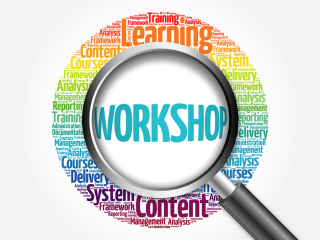Having an online presence in the area or region in which you serve is much-needed for law firms of all sizes, particularly those specializing in estate planning. As potential clients increasingly turn to the internet to find legal services, the significance of regional search engine optimization (SEO) cannot be overstated.

Regional or local SEO is the practice of optimizing your online content to attract more clients from relevant local searches. If your law firm generally gets most of its clients from surrounding areas, then it’s an area you must consider working on, to capture more regional website traffic, so that you can turn that traffic into business for your estate planning law firm.
In this blog, we’ll explore the importance of regional SEO for estate planning law firms, the strategies to implement to capture the right types of regional traffic, and the tools available to ensure your law firm stands out in a crowded market.
Understanding Regional SEO
Before looking into the specifics, it’s a good idea to understand what regional SEO entails. Unlike traditional SEO, which focuses on broader search terms, regional SEO zeroes in on specific geographical areas. For estate planning attorneys, this means optimizing your website and online content to rank higher in search results that are relevant to your region or city.
Why Is Regional SEO Important for Estate Planning Law Firms?
- Targeted Client Acquisition: Estate planning is a highly localized service. People typically seek out attorneys who are familiar with local laws and regulations. By optimizing for regional searches, you can attract clients who are looking for estate planning services in your specific area.
- Increased Visibility: As search engines like Google prioritize local results, a well-optimized site for regional SEO can significantly improve your visibility in search results, making it easier for potential clients to find you.
- Higher Conversion Rates: When clients find a law firm that is located near them, they are more likely to engage with your services. Regional SEO helps you capture this audience by making sure you show up when they search for estate planning assistance.
- Cost-Effective Marketing: Compared to traditional advertising methods, regional SEO is often more cost-effective. It allows you to reach your target audience without overspending on broader marketing efforts.
The Benefits of Regional SEO for Estate Planning Law Firms
When someone searches for estate planning services online, they’re often looking for local, reputable firms. Regional SEO allows you to rank higher in local search results, ensuring that your firm appears in front of people actively seeking estate planning assistance in your area. Optimizing for location-based keywords like “estate planning attorney in [City/State]” helps drive traffic to your site from users likely to convert into clients.
1. Enhanced Online Visibility
In a saturated market, visibility is key. Regional SEO helps your firm appear in local search results, which is particularly beneficial for estate planning services. A strong local presence increases the likelihood of being found by clients searching for services in your area.
Estate planning is deeply personal, and clients value an attorney who understands the specific legal landscape of their region. With regional SEO, you can optimize content to highlight your knowledge of local laws and your understanding of community needs. This approach not only boosts search rankings but also reinforces trust, signaling to potential clients that your firm is a knowledgeable local resource.
2. Improved Google My Business (GMB) Rankings
Claiming and optimizing your Google My Business profile, along with other local directories, gives potential clients quick access to your contact information, hours, reviews, and directions to your office. This increased visibility can make a significant impact on your practice by making it easier for clients to find and reach you.
A well-optimized GMB listing is vital for local searches. It allows you to control how your firm appears in Google searches and on Google Maps. Properly optimizing your GMB listing with accurate information, photos, and client reviews can enhance your visibility and attract local clients.
3. Building Trust and Credibility
Ranking high in local searches not only improves visibility but also enhances your firm’s credibility. Clients are more likely to trust firms that appear at the top of search results. Furthermore, a high number of positive online reviews can bolster this trust, making clients more inclined to choose your services.
Many law firms underestimate the power of regional SEO, leaving an opportunity for your firm to stand out. By prioritizing regional SEO, your practice can appear above competitors who haven’t optimized for local searches, positioning your firm as a leader in the local market. This strategic advantage can help you capture a significant share of potential clients looking for estate planning services near them.
4. Cost-Effective Client Acquisition
SEO, especially when focused on regional efforts, can be more cost-effective than traditional marketing methods. By targeting specific geographical areas and client needs, you can maximize your marketing budget while attracting potential clients who are more likely to convert.
5. Increased Client Engagement
When your firm appears in local search results, potential clients are more likely to engage with your services. This can include visiting your website, calling your office, or even stopping by for an in-person consultation. Increased engagement leads to higher conversion rates.
Key Regional SEO Strategies for Estate Planning Law Firms
To effectively implement regional SEO for your estate planning law firm, consider the following strategies:
1. Optimize Your Website for Local Searches
Your website is the foundation of your online presence. Here’s how to optimize it for regional SEO:
- Keyword Research: Identify keywords that potential clients in your area are using to search for estate planning services. Focus on long-tail keywords that include your city or region (e.g., “estate planning attorney in [City Name]”). Tools like Google Keyword Planner, SEMrush, and Ahrefs can assist with this.
- On-Page SEO: Incorporate local keywords naturally into your website’s title tags, meta descriptions, headers, and content. Make sure to include location-specific terms that resonate with your audience.
- Create Localized Content: Develop blog posts and articles that address specific estate planning topics relevant to your region. For example, discuss state-specific laws regarding wills and trusts, or provide information about local probate processes. This positions your firm as a knowledgeable resource in your community.
2. Claim and Optimize Your Google My Business Listing
A Google My Business listing is one of the most effective tools for local SEO. Here’s how to make the most of it:
- Claim Your Listing: If you haven’t already, claim your GMB listing and fill out all relevant information. This includes your firm’s name, address, phone number, and website URL.
- Choose the Right Categories: Select categories that accurately represent your practice. This helps Google match your firm to relevant searches.
- Add Photos: Including high-quality images of your office, team, and events can enhance your listing and make it more appealing to potential clients.
- Collect Reviews: Encourage satisfied clients to leave positive reviews on your GMB listing. Responding to reviews, both positive and negative, demonstrates that you value client feedback and can build trust with potential clients.
3. Build Local Citations
Citations are online mentions of your business name, address, and phone number (NAP) across various directories and platforms. Consistency is key, as discrepancies can harm your local SEO. Here’s how to build local citations:
- List Your Firm in Local Directories: Submit your firm’s information to relevant local and legal directories, such as Avvo, FindLaw, and local bar association directories.
- Ensure NAP Consistency: Make sure your business information is consistent across all platforms. This includes your website, GMB listing, and all directories. Inconsistencies can confuse search engines and impact your ranking.
4. Focus on Online Reviews and Reputation Management
Online reviews significantly impact your firm’s visibility and credibility. Here’s how to manage your online reputation effectively:
- Encourage Reviews: After a successful client engagement, encourage clients to leave reviews on your GMB listing and other review platforms. You can do this through follow-up emails or by providing a link to your review page.
- Respond to Reviews: Engage with clients by responding to reviews. Thank clients for their positive feedback and address any negative reviews professionally and constructively. This shows potential clients that you care about their experiences.
5. Use Localized Content Marketing
Boosting your website’s content is essential to capturing search traffic and connecting with the right clients. While weaving in keywords is important, quality content is key: it should provide genuine insights or solutions that resonate with visitors. Whether you’re offering educational resources, tackling frequently asked questions, or explaining your services, content should serve as a valuable touchpoint for potential clients.
For example, you might publish an article titled, “Understanding Probate: What It Is and Why It Matters,” and another titled, “How to Hire An Attorney For My Probate.” Each piece has its own appeal—while the first might draw curious readers wanting to learn more about probate, the second could attract those actively seeking legal guidance for probate matters.
Crafting unique, easy-to-read content that conveys authority is essential, as is including a clear call-to-action (CTA) to encourage readers to take that next step and connect with you directly. This approach not only draws the right audience but positions you as the go-to resource for estate law guidance in your area.
Content marketing can significantly enhance your regional SEO efforts. Here’s how to approach it:
- Write Blog Posts: Create informative blog posts about local estate planning laws, recent changes in legislation, and other relevant topics. This not only helps with SEO but positions your firm as a thought leader in the community.
- Use Local Keywords: Incorporate local keywords into your content to enhance search visibility. For example, “estate planning laws in [City Name]” can be a good focus for blog posts.
- Share Community Involvement: Highlight your firm’s involvement in local events, sponsorships, or community service. This showcases your commitment to the community and can attract local clients.
6. Mobile Optimization and User Experience
With the increasing use of smartphones for searches, optimizing your website for mobile users is crucial. Here’s how to ensure a positive user experience:
- Responsive Design: Make sure your website is responsive and looks good on all devices. This not only helps with SEO but also enhances user experience.
- Fast Loading Speed: A slow-loading website can deter potential clients. Use tools like Google PageSpeed Insights to identify and fix any loading speed issues.
- Easy Navigation: Ensure that your website is easy to navigate, with clear calls to action and easily accessible contact information.
Measuring Success in Regional SEO
To assess the effectiveness of your regional SEO efforts, consider the following tools and metrics:
1. Google Analytics
Google Analytics provides insights into website traffic, user behavior, and conversion rates. Monitor key metrics such as:
- Traffic Sources: Identify where your website traffic is coming from—whether it’s organic searches, referrals, or direct visits.
- Geographic Data: Analyze the geographic locations of your visitors to ensure you’re attracting clients from your target region.
- Conversion Rates: Track how many visitors are converting into clients, whether that’s through form submissions, calls, or consultations.
2. Google Search Console
Google Search Console allows you to monitor your website’s performance in Google search results. Key metrics to track include:
- Search Queries: See which keywords are driving traffic to your site and their respective positions in search results.
- Click-Through Rates (CTR): Analyze the CTR for your top-performing keywords to identify opportunities for improvement.
3. Local Rank Tracking Tools
Use local rank tracking tools like Moz Local or BrightLocal to monitor your firm’s rankings for targeted regional keywords. These tools provide insights into how well you’re performing in local searches.
4. Online Reviews and Ratings
Keep an eye on your online reviews and ratings across platforms. Tools like Reputation.com can help manage and analyze your online reputation, making it easier to respond to reviews and gather feedback.
Using Regional SEO strategies for law firms
As estate planning law becomes more competitive, regional SEO is a tactic you can use to your advantage. By optimizing your online presence for local searches, you can attract more clients, build trust, and ultimately grow your practice. Implementing the strategies outlined in this blog will help you enhance your visibility, improve client engagement, and establish your firm as a leader in your community.
As you embark on your regional SEO journey, remember that it requires ongoing effort and adaptation. The digital landscape is ever-changing, and staying ahead of the curve will ensure your estate planning law firm thrives in the long term.
Ready to capture more clients for your law firm using your online presence? Reach out to Lawyers with Purpose to see what kind of marketing support we can provide under our membership levels. You may book a law firm assessment here.
WORDS: Saima Omar
Saima Omar is a seasoned SEO Content Marketing Manager and qualified journalist with a background in crafting high-impact content strategies for startups and scale-ups. She specializes in SEO for industries like legal, fintech, and consumer, helping businesses boost visibility and drive targeted growth through tailored content.











